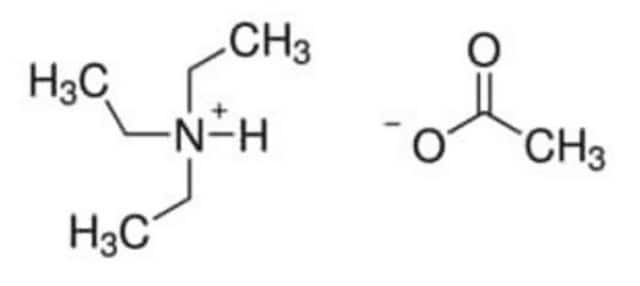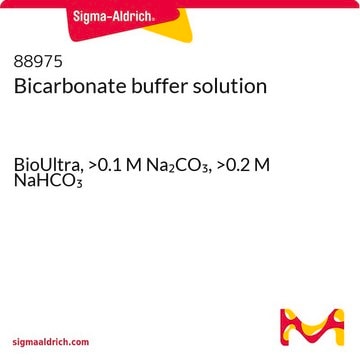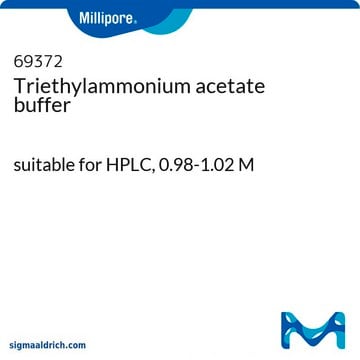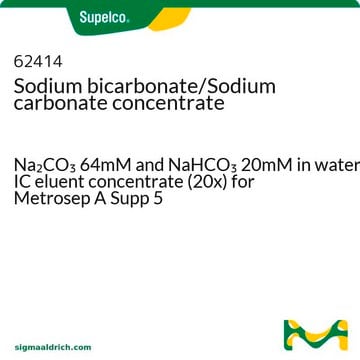90360
Triethylammonium bicarbonate buffer
volatile buffer, ~1.0 M in H2O
Synonym(s):
Buffer solution 1 M pH 8.5 (volatile), Triethylammonium hydrogen carbonate buffer
About This Item
Recommended Products
Quality Level
form
liquid
concentration
~1.0 M in H2O
refractive index
n20/D 1.355
pH
8.4-8.6 (25 °C)
density
1.018 g/mL at 20 °C
λ
neat
UV absorption
λ: 260 nm Amax: ≤0.05
λ: 280 nm Amax: ≤0.05
application(s)
diagnostic assay manufacturing
storage temp.
2-8°C
SMILES string
OC(O)=O.CCN(CC)CC
InChI
1S/C6H15N.CH2O3/c1-4-7(5-2)6-3;2-1(3)4/h4-6H2,1-3H3;(H2,2,3,4)
InChI key
AFQIYTIJXGTIEY-UHFFFAOYSA-N
Looking for similar products? Visit Product Comparison Guide
Application
Other Notes
Storage Class
10 - Combustible liquids
wgk_germany
WGK 3
flash_point_f
Not applicable
flash_point_c
Not applicable
ppe
Eyeshields, Gloves, type ABEK (EN14387) respirator filter
Certificates of Analysis (COA)
Search for Certificates of Analysis (COA) by entering the products Lot/Batch Number. Lot and Batch Numbers can be found on a product’s label following the words ‘Lot’ or ‘Batch’.
Already Own This Product?
Find documentation for the products that you have recently purchased in the Document Library.
Customers Also Viewed
Our team of scientists has experience in all areas of research including Life Science, Material Science, Chemical Synthesis, Chromatography, Analytical and many others.
Contact Technical Service















